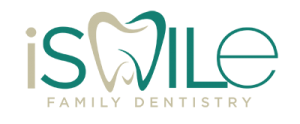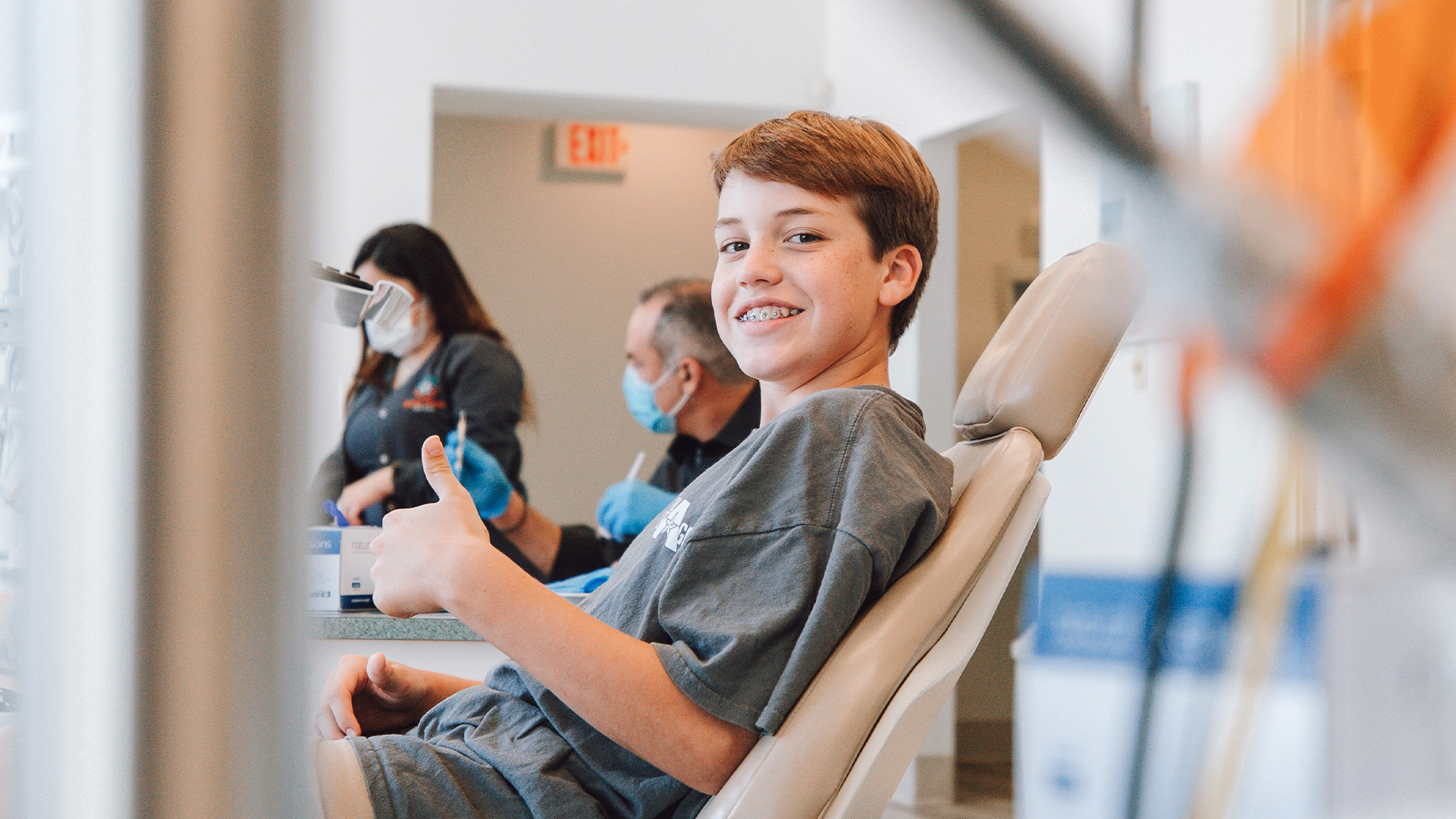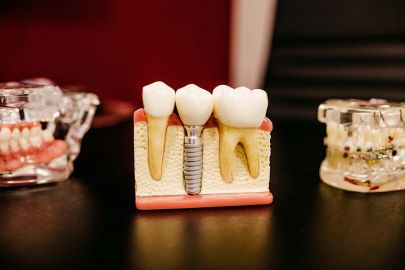Everyone knows the importance of brushing and flossing your teeth, but did you know that regular dental cleanings are just as important? Dental cleanings are a type of preventative dental care that helps keep your teeth and gums healthy and free of disease. During a dental cleaning, a professional dental hygienist will remove plaque, tartar, and bacteria from your teeth, as well as perform an exam to check for any signs of periodontal disease or other oral health issues. Dental cleanings are essential for maintaining good oral health and can even help prevent more serious dental problems down the road. So if you want to keep your teeth and gums healthy, it’s important to make sure you get regular dental cleanings.
What is a dental cleaning?
A dental cleaning removes plaque, tartar, and bacteria from your teeth and gums. Southaven dentists recommend getting a dental cleaning every six months, but the frequency of cleanings actually varies a lot based on your personal oral health. For example, if you have general gum inflammation, you might need to see your dentist more often to get your teeth and gums treated. If you have diabetes or take certain medications, like steroids, that make you more susceptible to gum disease, you might need dental cleanings every three months. Basically, the more often you get dental cleanings, the less likely you are to develop serious oral health problems, like tooth decay and gum disease. A dental cleaning typically takes about an hour and can be conducted in your dentist’s office or in a dental hygienist’s office (sometimes referred to as a dental clinic). During the cleaning, your dental hygienist will first examine your teeth and gums to look for any signs of disease. If they don’t find any, they will then use special instruments to clean your teeth, like a dental scaler and dental floss. A dental scaler is like an extremely soft dental brush, but with very fine, abrasive bristles. A dental scaler can remove tartar that regular brushing and flossing can’t remove, as well as plaque. Dental floss is used to gently scrape plaque off your teeth, especially in hard-to-reach areas.
Benefits of regular dental cleanings
If you get regular dental cleanings, they can help prevent many of the most common oral health issues, including tartar and plaque buildup, gum disease, and tooth decay. – Tartar and plaque buildup – Plaque is a sticky substance made up of bacteria and food particles that forms on your teeth and gums every single day. If left unchecked, plaque can harden into tartar and lead to gum disease, tooth decay, and other serious oral health issues. Regular dental cleanings remove plaque before it has a chance to harden, which prevents the buildup from becoming a problem. – Gum disease – Gum disease, or periodontal disease, is a bacterial infection that damages the soft tissue that holds your teeth in place. Left untreated, gum disease can result in tooth loss. During a dental cleaning, your dental hygienist will look for signs of gum disease and will likely clean your gums with special instruments to remove plaque and bacteria. If you get regular dental cleanings, you greatly reduce your risk of developing gum disease. – Tooth decay – Tooth decay, also known as dental caries, is caused by bacteria in plaque breaking down sugars and forming acids. When left untreated, tooth decay can result in tooth loss. A dental cleaning can help prevent tooth decay by removing plaque and bacteria, and allowing your teeth to remineralize more quickly.
Signs that you need a dental cleaning
– Bad breath – Bad breath is a common sign that you have excess plaque or bacteria on your teeth. If you notice an unusual amount of bad breath (more than once a week), it might be a sign that you need a dental cleaning. – Periodontal pockets – Periodontal pockets are areas on your teeth where the gums have receded. If you have periodontal pockets, it’s a sign that you have gum disease, which can cause tooth decay. If you have periodontal pockets on two or more of your teeth, it’s a sign that you need a dental cleaning sooner rather than later. – Sensitivity or pain – Tooth decay can lead to sensitivity or pain in your gums, teeth, or even your tongue. If one or more of your teeth is painful, you might have tooth decay. If you notice tooth pain or sensitivity, it’s a sign that you need a dental cleaning. – Changes in your bite – You might not even realize that you have a bite issue, but misalignment in your bite can be a sign that you have gum disease. If you notice that you have a misalignment in your bite, it’s a sign that you need a dental cleaning.
How often do you need a dental cleaning?
It’s important to note that not everyone needs a dental cleaning every six months. In fact, most people only need a dental cleaning once every one or two years. The frequency of dental cleanings really depends on your oral health. The more often you brush and floss, and the better care you take of your gums, the less often you’ll need a dental cleaning. If you have diabetes or take certain medications that can cause gum disease, like steroids, you may need dental cleanings every three months. If you’re unsure when you should get your next dental cleaning, it’s best to talk to your dentist or dental hygienist. They can give you personalized recommendations based on your individual oral health. They can also let you know if you’re at risk of developing serious oral health issues.
What happens during a dental cleaning?
A dental cleaning usually takes about an hour, but the length of the appointment will vary based on the severity of your dental health. At the beginning of your dental cleaning, your dental hygienist will first perform a thorough teeth cleaning and exam. They may scrape the tartar off your teeth with dental floss, and they may use an ultrasonic scaler to scrape plaque off teeth. They may also use an electric scaler to remove extra plaque, tartar, and other gunk from your teeth. Your dental hygienist may also use a water irrigator to rinse your teeth. After your teeth are clean and free of bacteria, bacteria, and gunk, your dental hygienist will use a dental mirror to look at your gums and teeth. If they notice any signs of gum disease, they will likely clean your gums with special instruments, like a scaler and dental explorer. After your cleaning is done, your dental hygienist may recommend an oral health regimen for you to keep your teeth and gums healthy.
How to prepare for a dental cleaning
If you’re getting a dental cleaning for the first time, there are a few things you can do to prepare for the appointment. First, it’s a good idea to stop brushing and flossing a couple days before your dental cleaning. This will help loosen up the plaque on your teeth, making it easier for your dental hygienist to remove it during the cleaning. It’s also recommended to rinse your mouth with a baking soda rinse before your dental cleaning. You can find many recipes online for a baking soda rinse. You can also try a mouthwash before your dental cleaning, but avoid alcohol-based mouthwashes because they can dry out your gums.
What to expect after a dental cleaning
After a dental cleaning, you may have some mild or moderate tooth and gum sensitivity. You may also experience a slight amount of tooth or gum pain. That pain will subside after a few days, so make sure to take care of your gums and teeth for a few days after the dental cleaning. Your dental hygienist may suggest that you avoid tough foods that can scrape your teeth like nuts and steak, and drink plenty of water to keep your mouth moist. It’s also a good idea to avoid smoking and drinking coffee after a dental cleaning because both can irritate your gums. After a dental cleaning, you can expect to feel fresh and have cleaner teeth and gums. You may notice a difference in your taste buds and sense of smell, too!
What to do after a dental cleaning
Once the dental cleaning is done, you can go back to brushing and your dentist will suggest a time to come and re-visit the office in the future.




